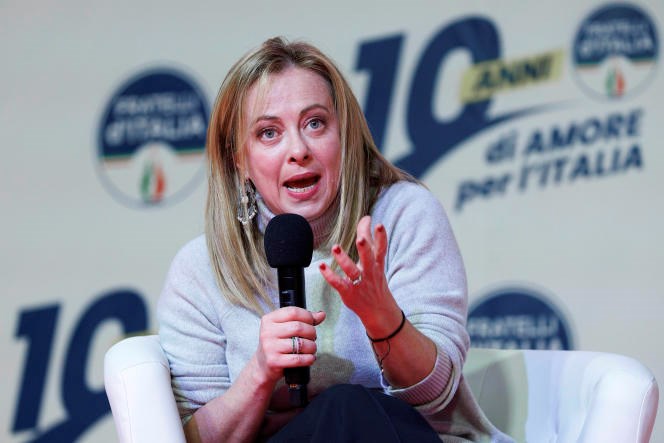Meloni's 2023 economic plan approved by Italy's lower house
Italy is facing a mammoth deficit this year of 5.6% of GDP, which Meloni stated she intends to progressively cut down to 4.5% in 2023 and then 3% in 2025.
-

Italian PM Giorgia Meloni (Le Monde)
Giorgia Meloni’s budget law has been approved by Italy's lower house which secures support for her economic plans. Final approval by the Senate is expected to be received as soon as December 27.
Meloni's 2023 package entails over €30 billion ($31.9 billion) targetting energy measures and regulating the cost of bills and fuels, and tax cuts for companies and self-employed individuals are also featured.
Italy is facing a mammoth deficit this year of 5.6% of GDP, which Meloni stated she intends to progressively cut down to 4.5% in 2023 and then 3% in 2025.
However, funds will result from a higher windfall tax on energy companies and worthy cuts in citizens' income.
Rate hikes are a 'rash'
These measures are expected to increase as the European Central Bank continues to hike interest rates to manage inflation. This was criticized by Meloni and her allies for pressuring economies like Italy’s that have suffered through the pandemic and are not as affected by the energy crisis.
She called the ECB’s rate hikes a “rash” and her ally, Defense Minister Guido Crosetto, views them as a threat to impose a €100-billion credit crunch on the country.
Lowering the retirement age, a vow made by Meloni ally Matteo Salvini, is part of the economic package promised by Meloni, alongside measures for more companies to hire. It also advocates for Italians to have more children by increasing child benefits and support for families.
The new Italian Prime Minister has been firm about her support for Ukraine, in line with the rest of the European Union and the United States.
"I intend to lead a government with a clear and unequivocal foreign policy line," Meloni has said, stressing that "Italy is fully, and with its head held high, part of Europe and the Atlantic Alliance."
Meloni's coalition wants to renegotiate Italy's part of the EU's post-Covid recovery fund, arguing the almost 200 billion euros ($193 billion) it expects to receive should take into account the current energy crisis, exacerbated by the war in Ukraine which has hit the supplies of Russian gas to Europe.
Read next: Italy's Meloni slams Macron's France for exploiting African children

 3 Min Read
3 Min Read









